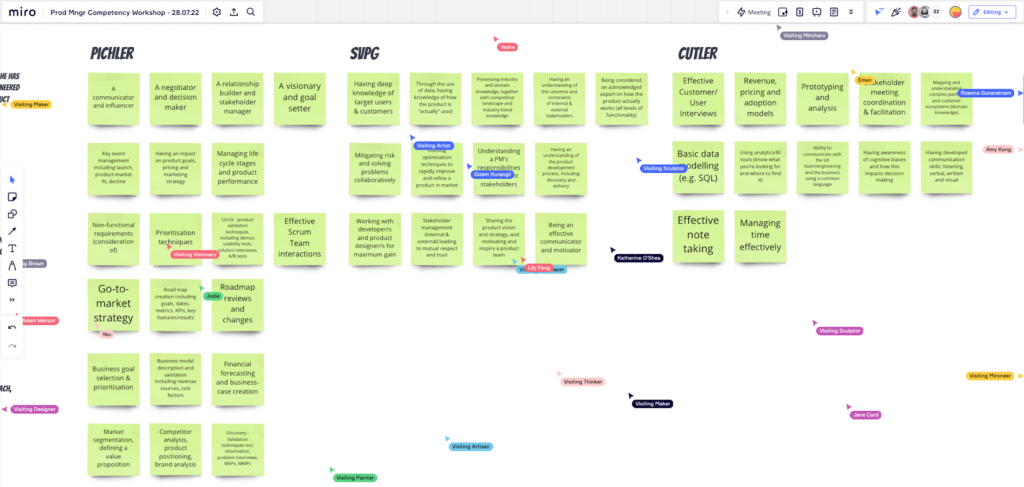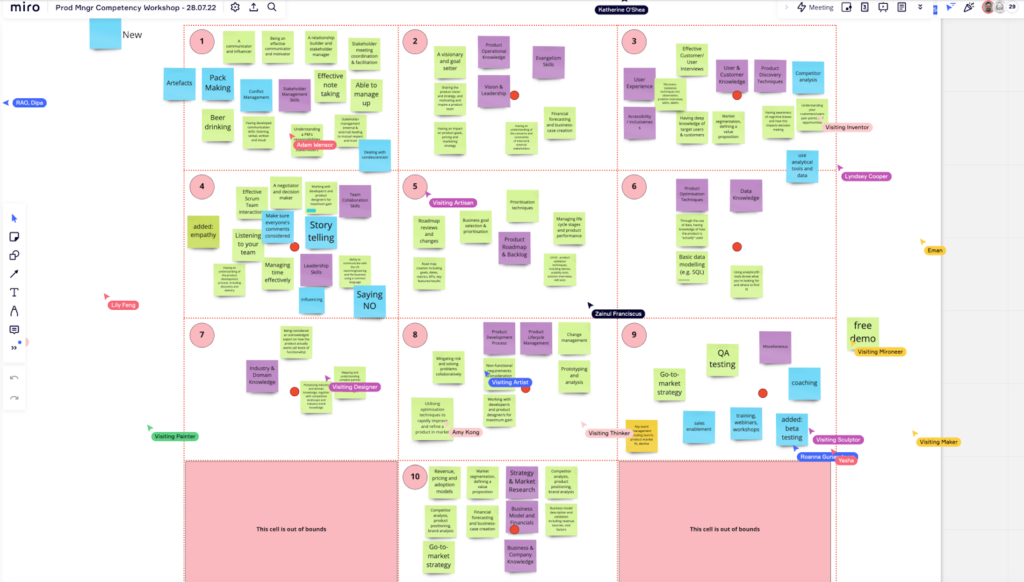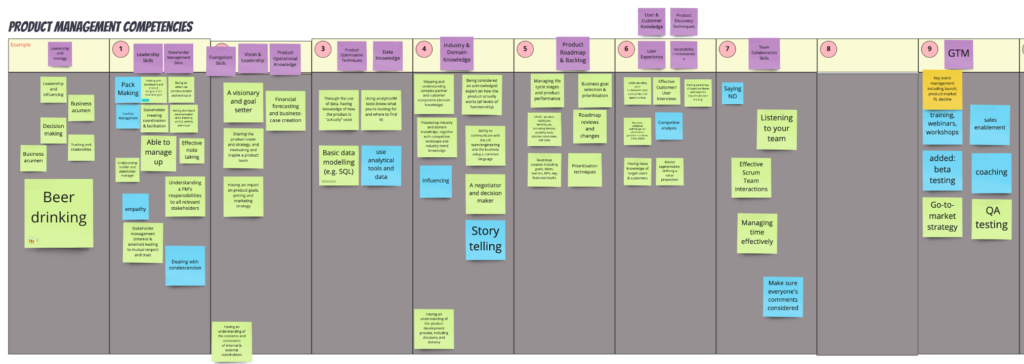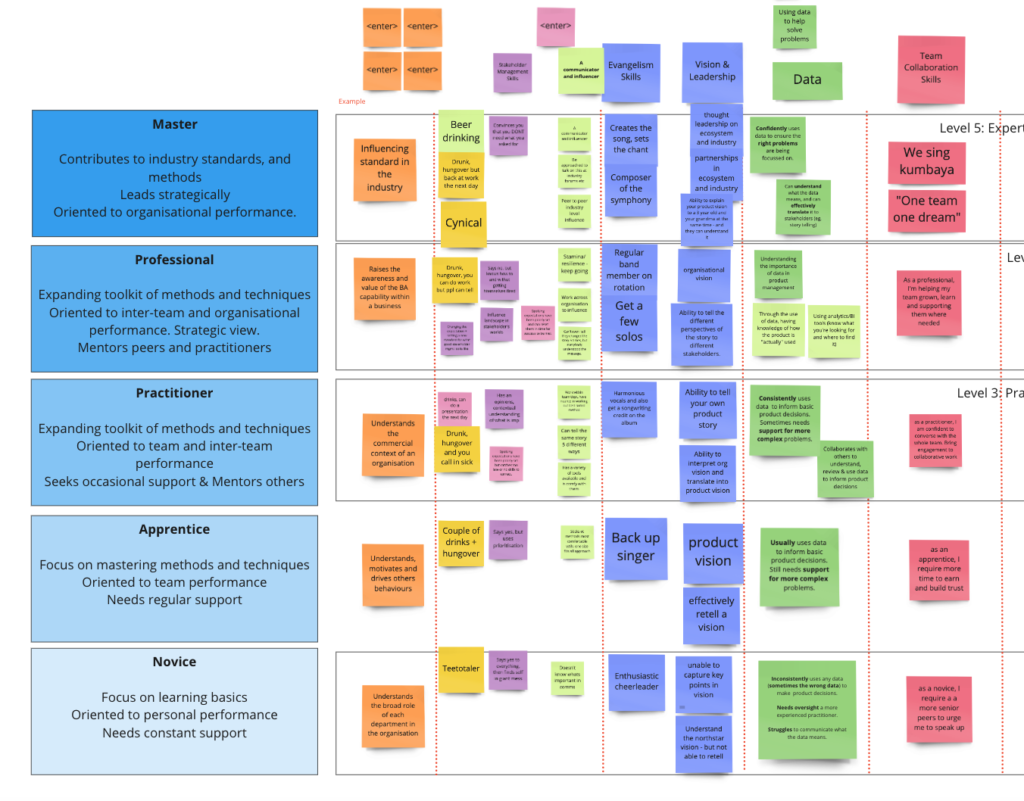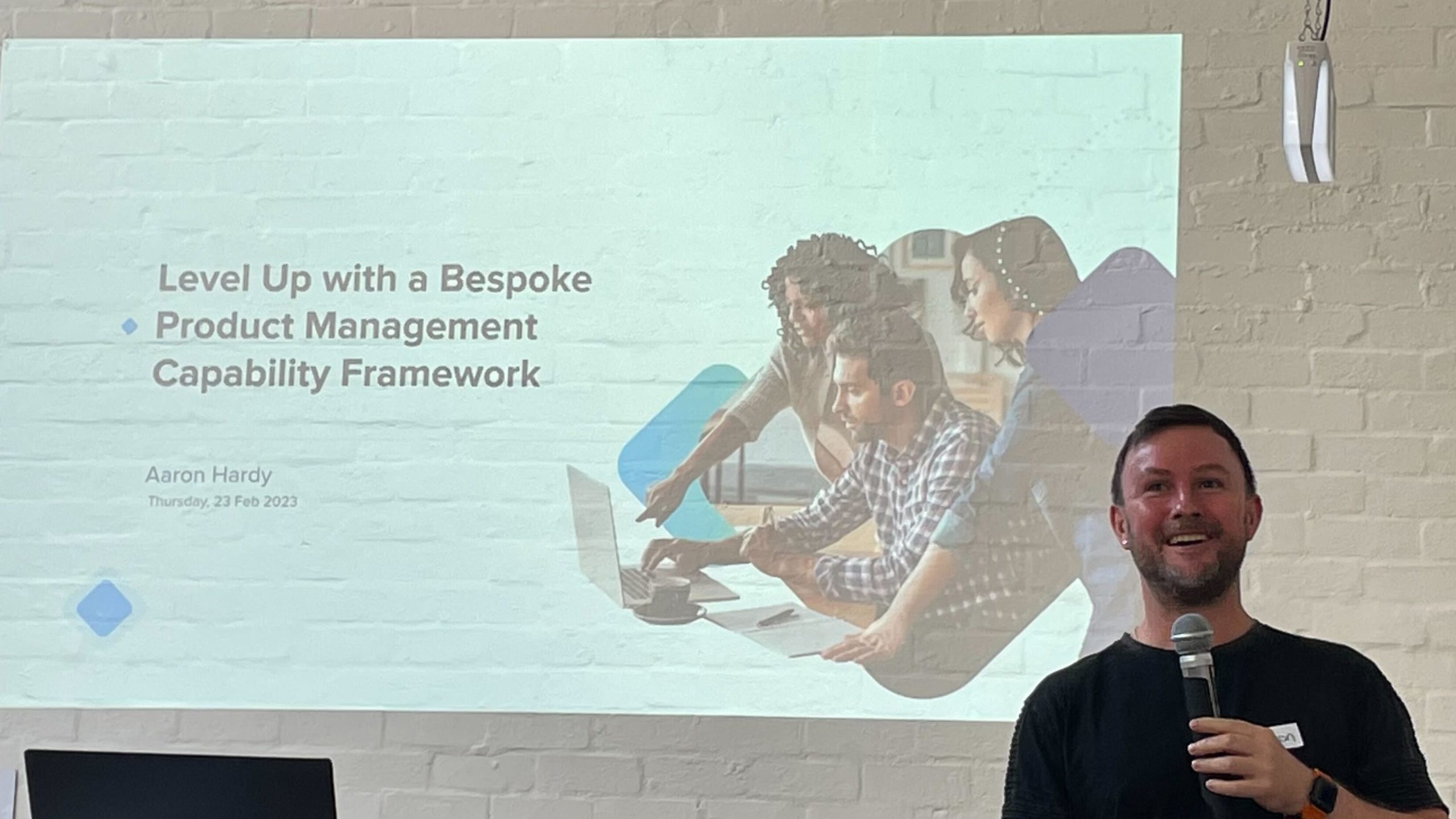
When Aaron Hardy first moved into a product leader role at PageUp, he needed to take stock of the situation, and work out where to focus his efforts first. Were there changes to make to the product? Did they have an adequate strategy to guide them? Or should he begin with his team?
After speaking with his new team, one area Aaron identified as lacking was a capability framework or career ladder. How were the team to know how they were performing? What steps would they need to take to move to the next level?
The team had already been through multiple restructures, with various leaders coming and going. And with that, each time the team would inevitably end up having to explain what they did, what value they brought, and justify why they were needed on the team. Would he put them through that all again?
Taking inspiration from Ben Horowitz (and Jim Barksdale) Aaron decided to start with his people.
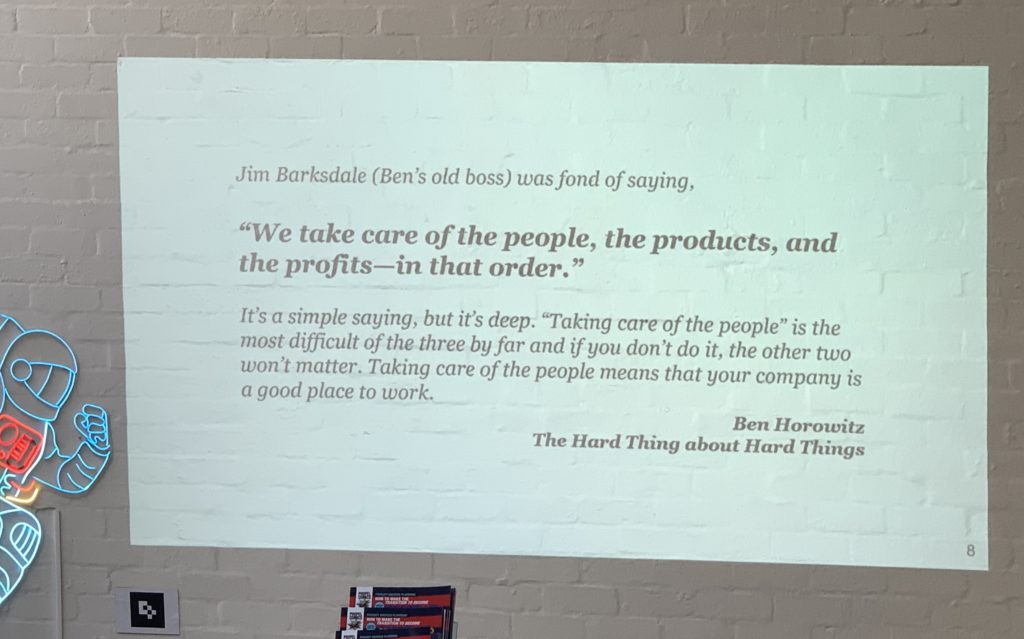
Step 1: Researching Capability Frameworks
Before jumping straight in to create his own capability map, Aaron researched the existing frameworks already available. And there were plenty out there. However, none of them quite fit what he was looking for.
- Intercom’s framework has been shared quite extensively, and does a great job to show how to level up as a product manager. However, they have a very different business model, making it difficult to apply to PageUp.
- The Association of Product Professionals had a good structure, demonstrating external (market) vs internal (operational) aspects. However, it was a little too heavy for what they needed. Aaron needed something simpler for his team to use.
- Pragmatic Marketing Framework: Looking outside of direct product management, Pragmatic gives a good visual of broad capabilities. It also helps you evaluate what you’re doing and what you’re not. Then giving you the opportunity to assess if you think those gaps are important.
Aaron wanted to find something that was relevant to the way they did product. Something that his people could relate to, and use in their day to day activities.
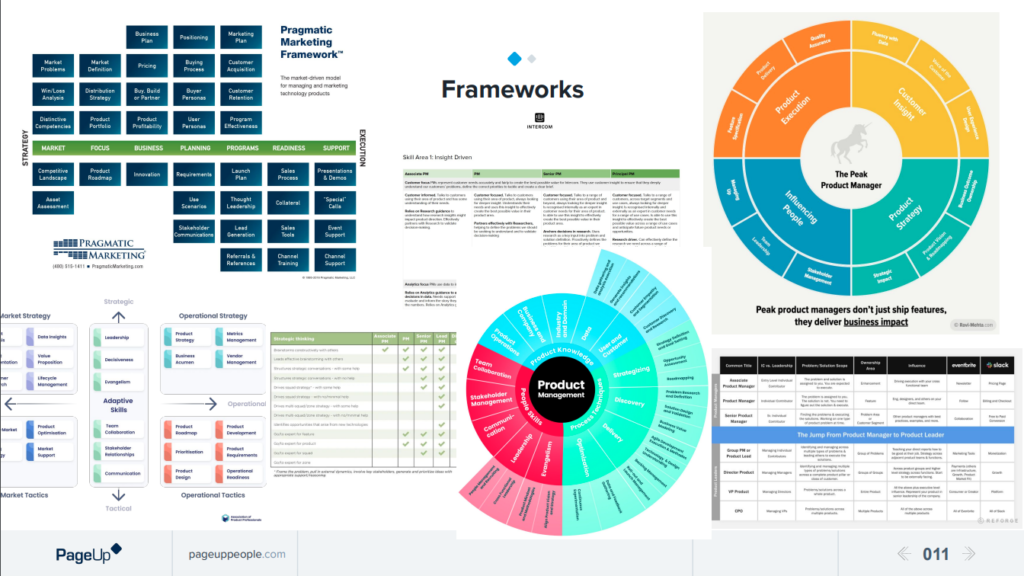
Step 2: Product Mastery Levels
After having a good view of the different skills needed, the other side of a capability framework is how many levels you need. Where is your company at, and what’s right for them?
Also, it has become more common for companies to recognise and support different career tracks for:
- individual contribution; and
- people leadership.
Wherever you land, remember – it’s for a point in time. As you grow and mature, you may need to extend the framework in the future.

You should also consider the different types of product work, from:
- Feature Work
- Growth Work
- Scaling Work
- Product Market Fit Expansion.
And the different possible paths into product.
Beyond the obvious Product Owners or other product adjacent roles, some other sources to grow your talent pool could be from support, operations, consulting, marketing, psychology, research, entrepreneurs, and many more.
Step 3: Making it Bespoke
The next stage is to try to pull it all together:
- Mapping out all the skills;
- Removing the irrelevant ones;
- Finding the duplicates; and
- Ranking what is important.
Hot tip: Making things visual can make them easier to understand.
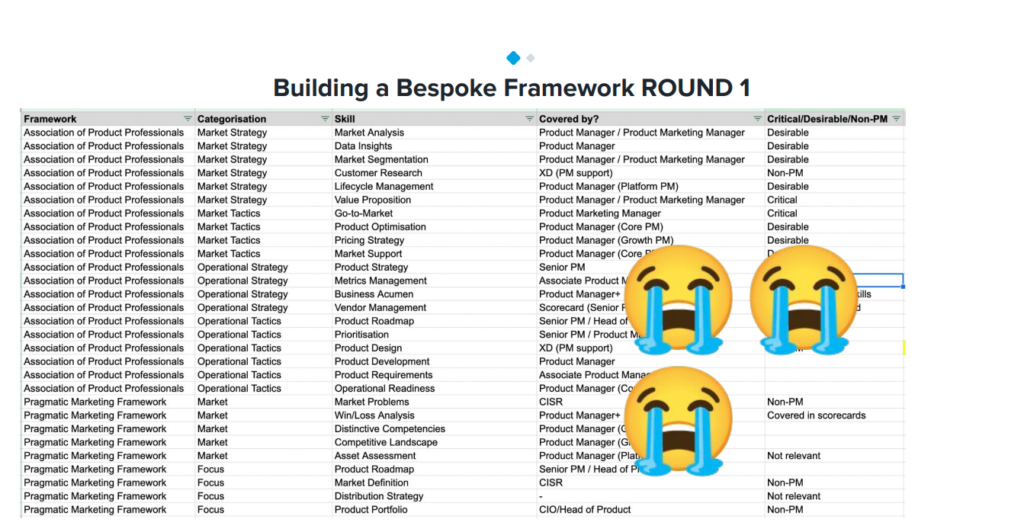
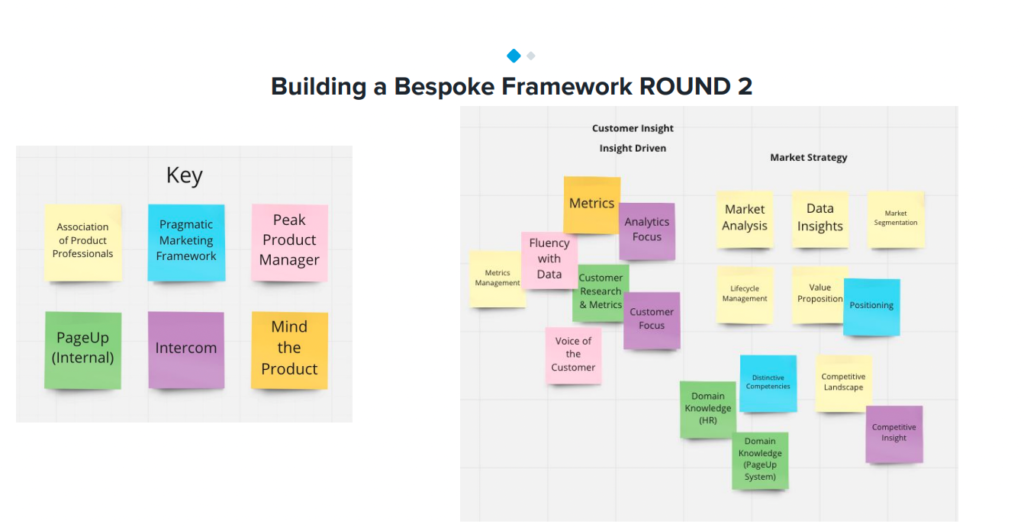
However, then comes the hard part:
Mapping to your own framework:
- Writing descriptions for each capability. This will eventually be incorporated into Position Descriptions, so some things to consider would be:
- What is expected at each mastery level?
- How are the different mastery levels mapped to different roles?
- How would people demonstrate their capability?
Socialising:
- How does your capability matrix align with other disciplines you partner with (eg, UX)? It’s good to gather feedback and support from your peers, senior team members; partners and possibly even senior leaders.
Input from the team:
- You can also include the team. Have them help with the descriptions and differentiators. Rank the importance of each capability. Get them involved so they can contribute and shape the result, making it easier to create buy-in.
Ways to Level Up
Once you have your shiny new capability framework, it can help provide clear guidance for the team of what’s needed to reach the next level and they can do one of many self-assessments available online.
But how can they actually level up?
There are plenty of methods are your disposal:
- Formal training or courses – to either learn new skills, or revalidate existing skill levels;
- Observation – following product leaders on social media;
- Informal / on the job training;
- Coaching and mentoring; and
- Meetup groups.
Thank you
Thank you to Aaron for sharing his journey; our volunteers on the night, Yau, Yasha, Sakthee and Steve; and our event hosts Propel Ventures.
Slides and Additional Resources
Frameworks
- Intercom – Product Management Career Ladders and Product Manager Expectations by Level
- Ravi Mehta – Product Manager Skills
- Pragmatic Marketing Framework
- Agile Insider (Brent Tworetzky) – Product Manager Skills by Seniority Level – A Deep Breakdown
- Reforge – Crossing the Canyon Product Manager to Product Leader
- Markus Muller – Decoding Product Management – A skill matrix to grow, coach, assess, and hire world-class PMs
Assessment tools
- Association of Product Professionals – Product Proficiency Benchmark Yourself
- Mind the Product – Product Skills Assessment
- Petra Wille – A Brief List of Product Management Assessment Tools
- Ravi Mehta – Product Manager Roles
Additional reading
- John Cutler Mandate Levels
- From the Archives – Product Management Career Development Workshop


